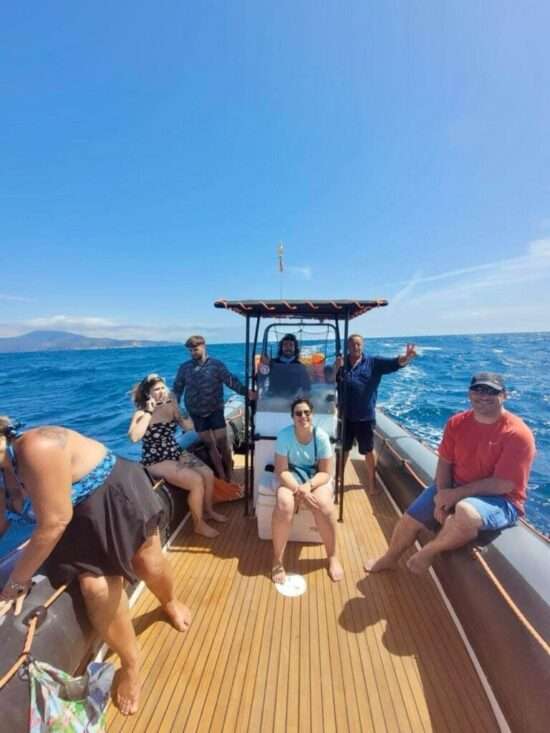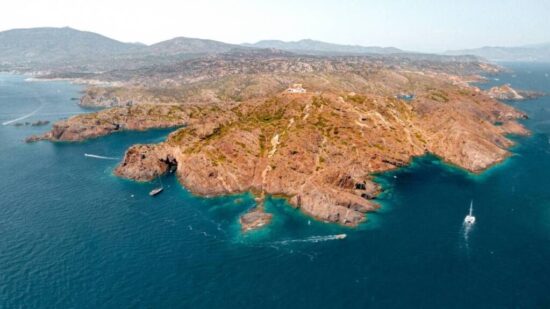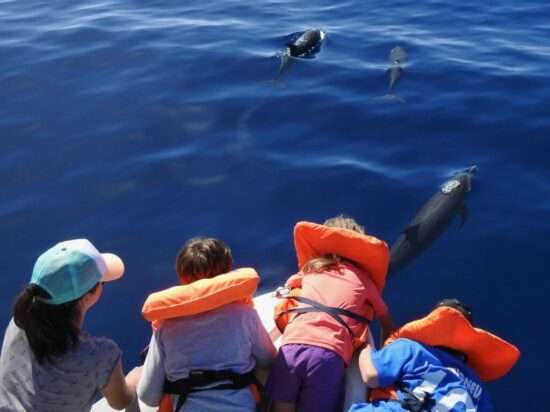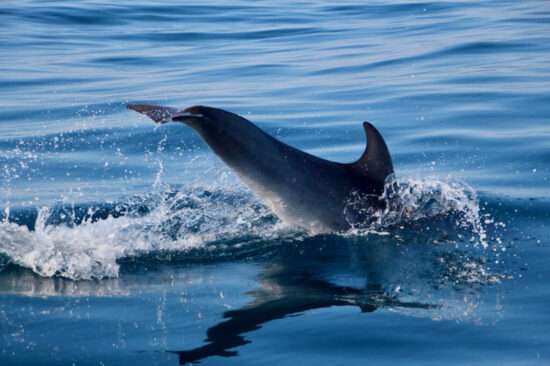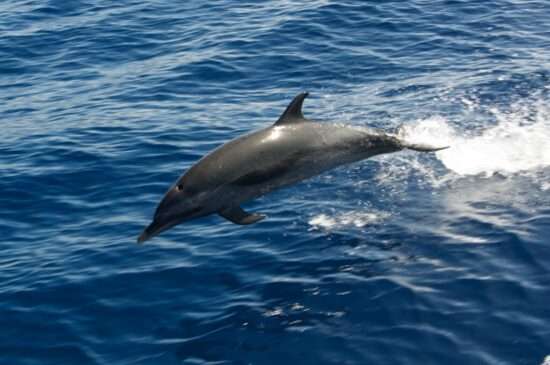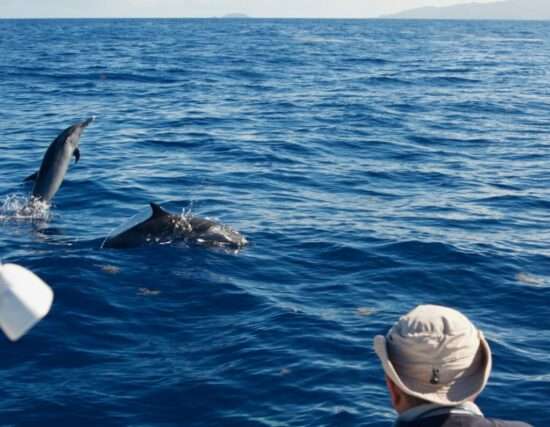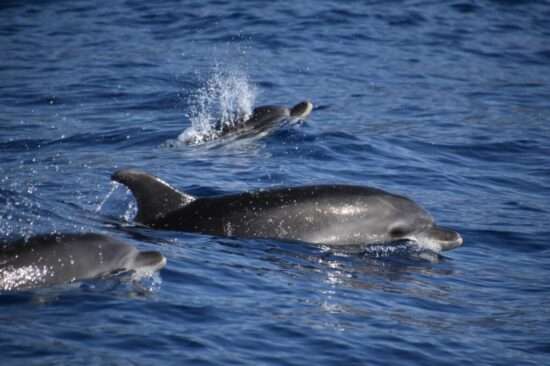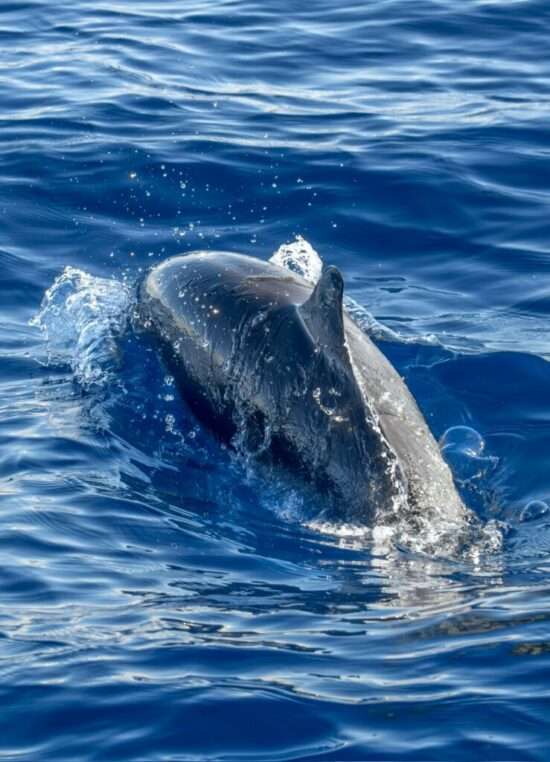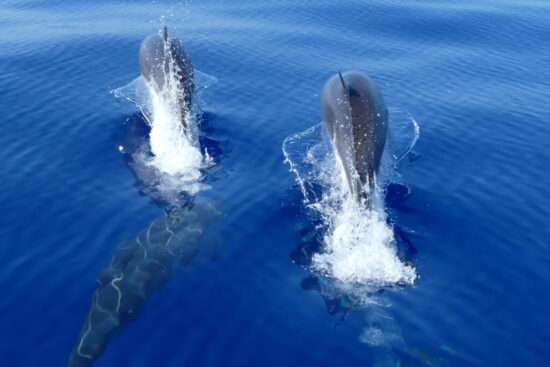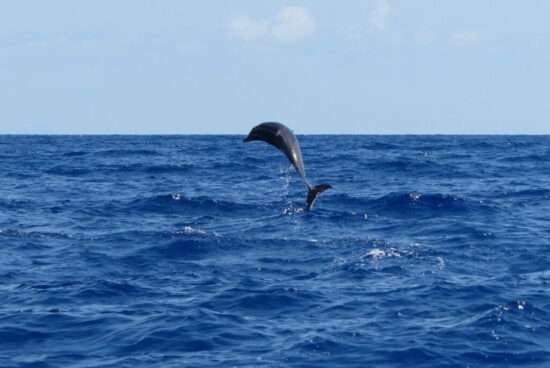Our base in Cadaqués is a special and fascinating destination, as we sail through the Cap de Creus canyon, a unique eco-system.
The animals here are rarer and more discreet than on our other bases, as this area is not frequented by humans, making sightings more difficult and rarer, but more authentic and emotional too.

A word from Pierre
Cadaqués is our experimental research base.
For us, it's the ideal setting to study respectful, non-intrusive approach techniques.
Because cetacean watching can be done respectfully, and these techniques can be improved - it's our mission, our passion.
The Cap de Creus Natural Park offers an exceptional field of study. This unspoilt, wild and unpredictable place is home to an underwater canyon that stretches from the cliffs to over 30 miles offshore, reaching a depth of 2,000 meters. A true ecological corridor, it constitutes a unique ecosystem where hundreds of marine, plant and animal species cohabit.
For us, it's the ideal setting to study respectful, non-intrusive approach techniques. Cetacean watching can - and must - be done with total respect for their freedom and habitat. These practices can be perfected, shared and passed on. This is our mission. It's also what drives us deeply.
This canyon is a unique eco-system, home to hundreds of species of marine plants and animals.
Among the many marine species present in the canyon, two families of dolphins are resident here: the Tursiops truncatus, close to the coast, and Stenella coeruleoalba, which can be seen further offshore. This underwater corridor is also a regular stopover for fin whales, the sperm whales and other large deep-sea cetaceans.
To date, no other scientific or tourist organization has visited this canyon as regularly and as committedly as we have. For the past five years, our continuous presence has enabled us to better understand the richness of this ecosystem and to follow its evolution with total respect for living things.
This canyon has become our open-air laboratory. The cetaceans we encounter here are entirely wild, living far from any human interaction. Human activity is extremely limited, reduced to a few trawlers which the animals instinctively avoid.
Our outings at sea enable us to test, evaluate and refine ethical, respectful and non-intrusive approach techniques. These experiments feed our expertise and enable us to pass on our methods to partner whale watching bases that we select in other parts of the world.
The Cadaqués base thus embodies the heart of our mission: a space for observation, innovation and sharing.
